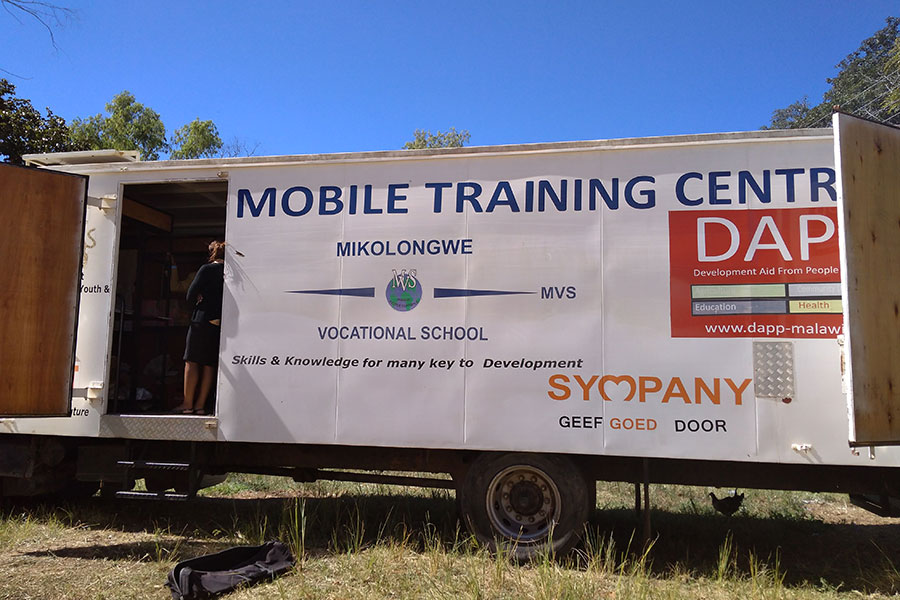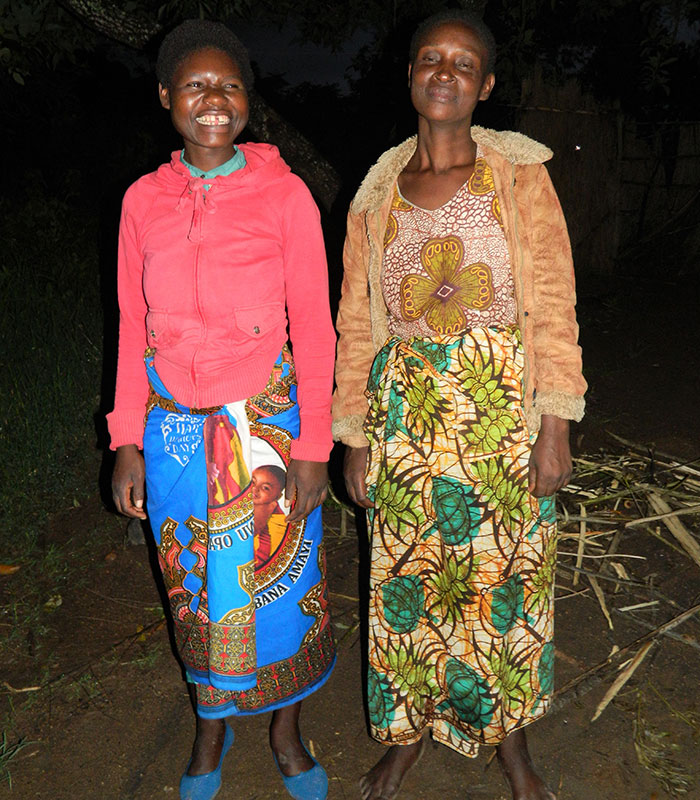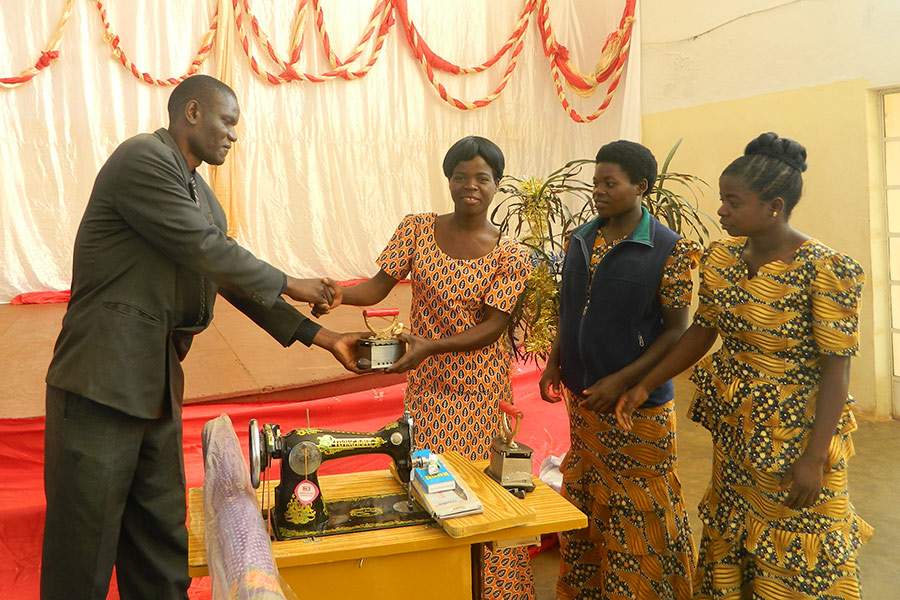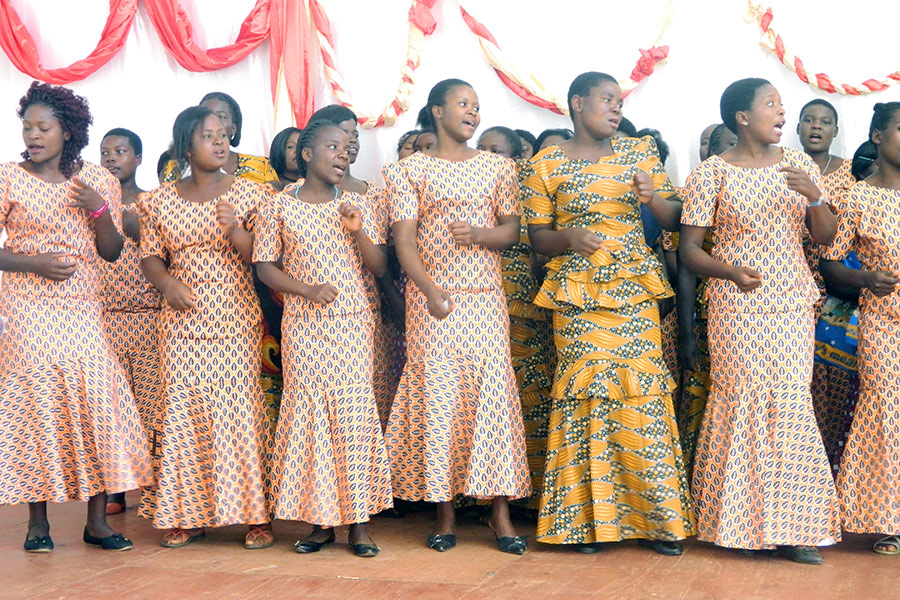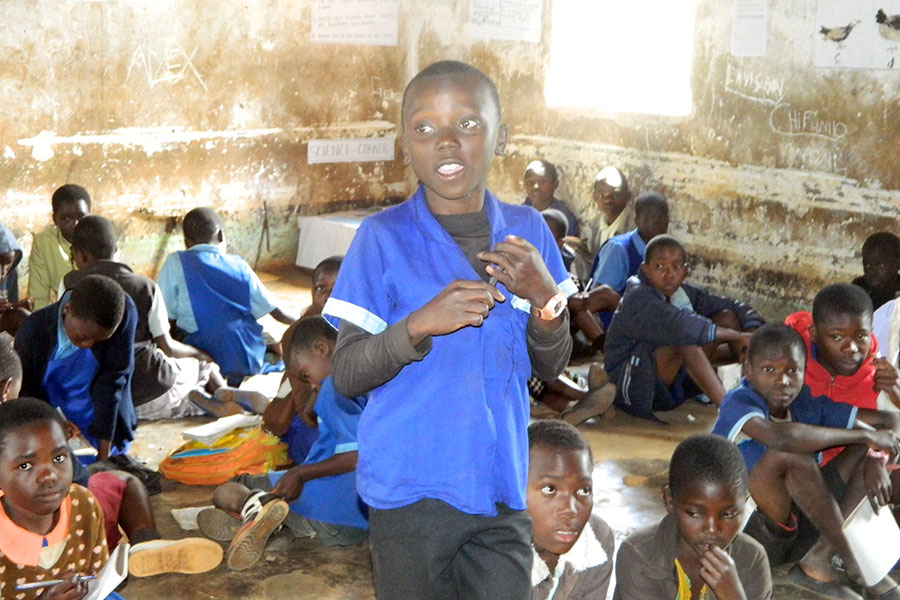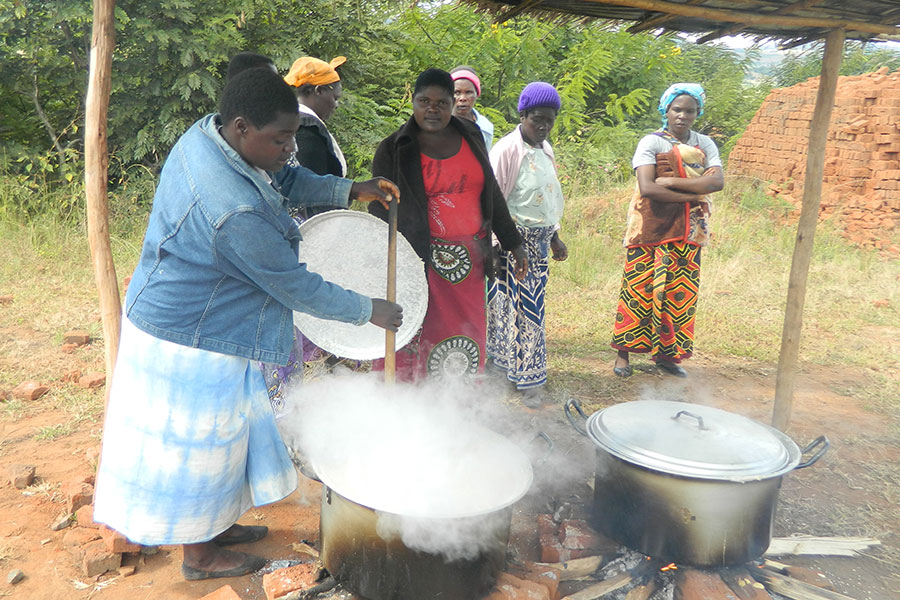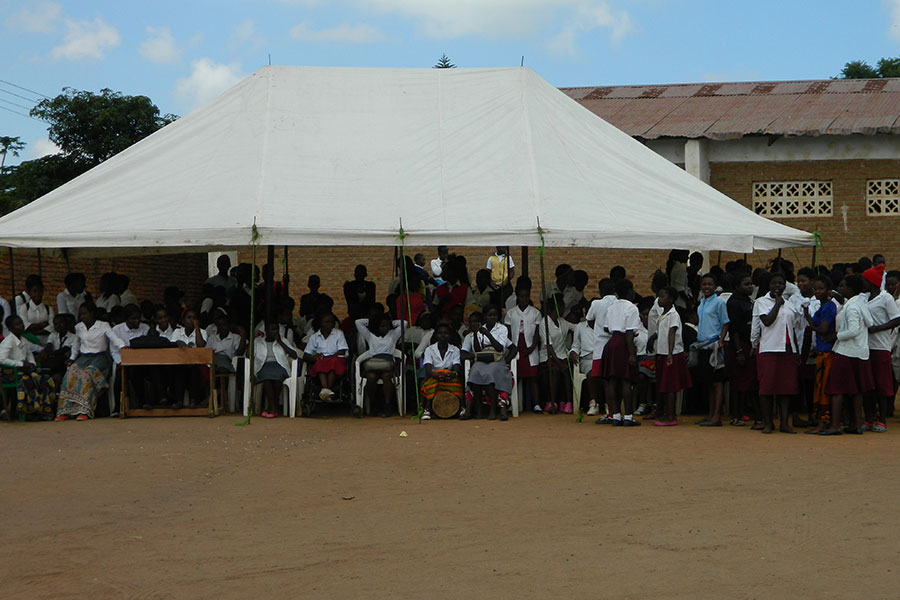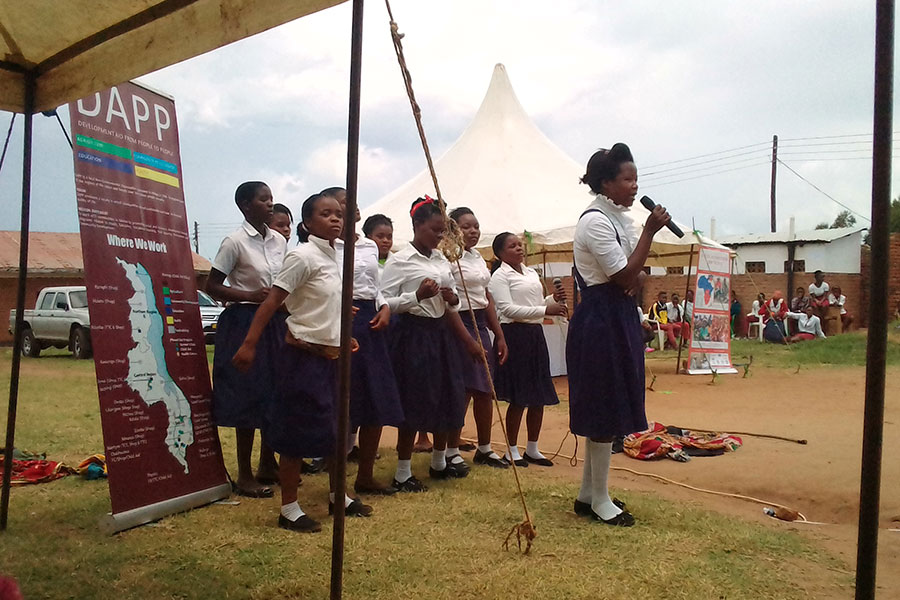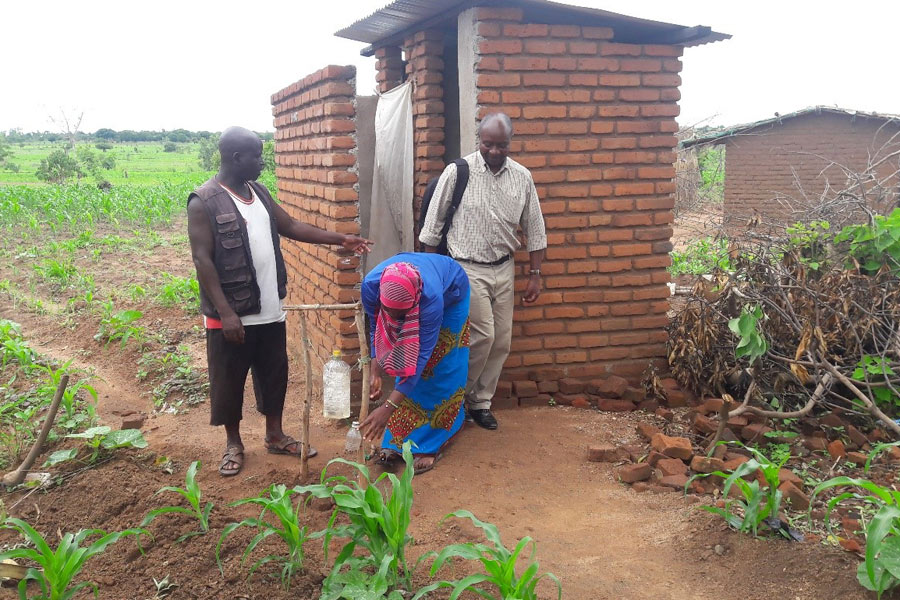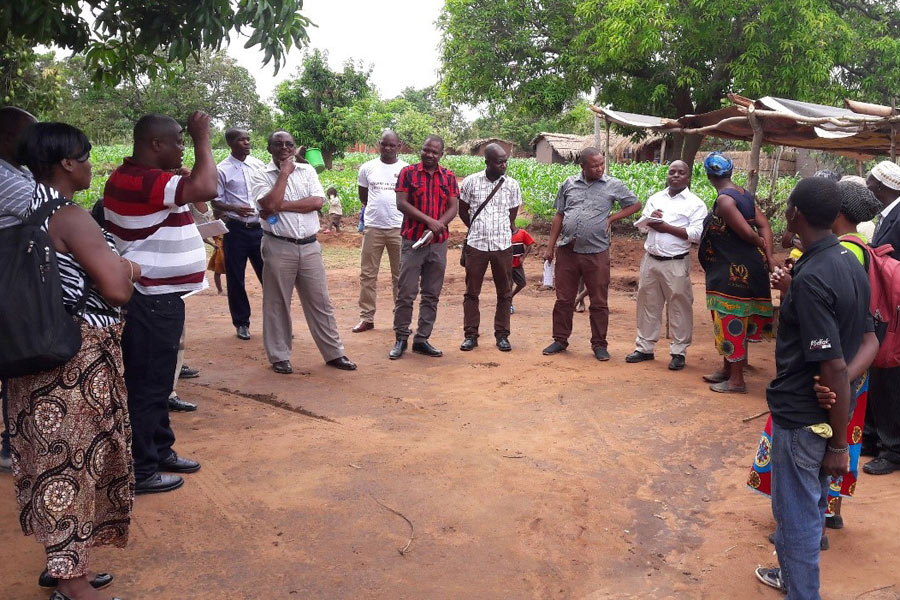Neno Girls Hope for Economic Empowerment
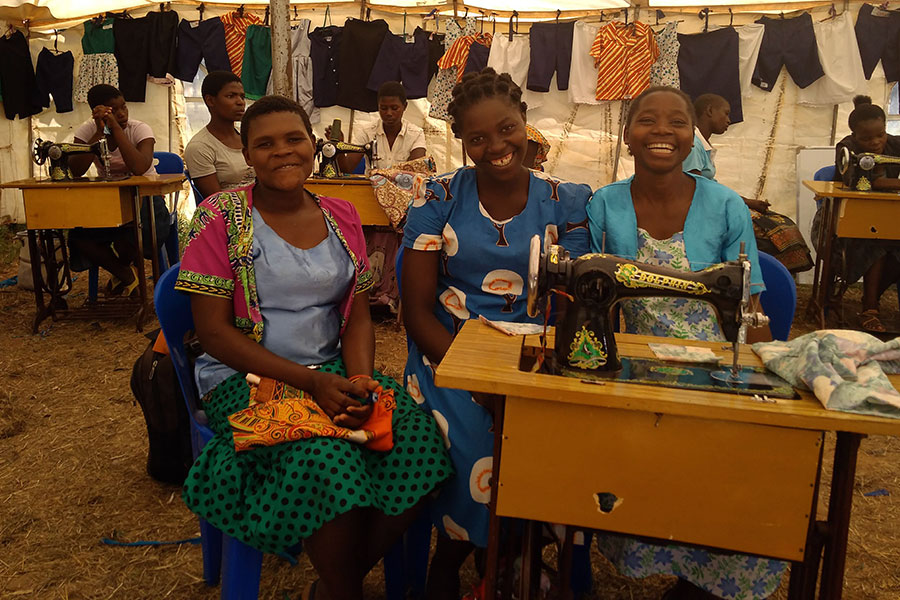
Mary Gogoda, Yamikani Office and Lusina Benda are among 31 young women and girls who are undergoing a four-month tailoring training at Neno Youth Centre in Neno district. The training also known as Mobile training is a four-month program being run by Development Aid from People to People (DAPP) Malawi with financial support from Sympany of Holland.
Started in 2016, the project targets to equip 270 vulnerable young and women and girls with technical and entrepreneurial skills in order for them to be able to start their own small scale businesses by 2021. The program is an extension of DAPP Mikolongwe Vocational School aimed to reach out to more youth in hard to reach areas.
From March 2018, the Mobile Training Truck is in Neno district where Mary, Yamikani and Lusina aged 23, 21 and 23 respectively are among the girls benefiting from the free training. These three form one of the trios (group of three people) in the district who are expected to graduate in August 2018. They all come from Traditional Authority Chekucheku with Mary coming from Chidakwani village, Yamikani from Chilombo village and Lusina from Hiwa village.
Born in a family of 5, Marylost her mother and she stays with her father and four siblings. She said she dropped out of school while in Standard 8. Yamikani was born in a family of six and she grew up growing and selling vegetables with her two siblings since their father left the village to marry in another area. On the other hand, Lusina was born in a family of 8, she lost both her parents and 7 siblings. She was raised by her grandmother and they used to brew kachasu (local beer) to earn a living until she was selected to be part of the tailoring training.
As a trio, they say after the training they will set up a tailoring shop from which they hope to be making at least 50,000.00 Malawi kwacha (about USD 69) per month when they have enough customers. They say this is going to be possible because they will be sharing responsibilities.
“For instance, I would be manning the sewing machine, Yamika would be cutting the fabric while Lusina is ironing the materials sewn. This way productivity will be high comparing to when there is one person doing everything,”said Mary.
The team said they will work with experienced tailors from their villages to gain more experience after the training. Additionally, they plan to also impart the skills in their fellow peers who they hope to engage within a year since by then they will be able to buy two extra sewing machines.

